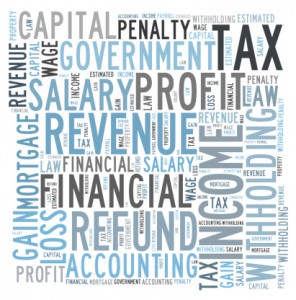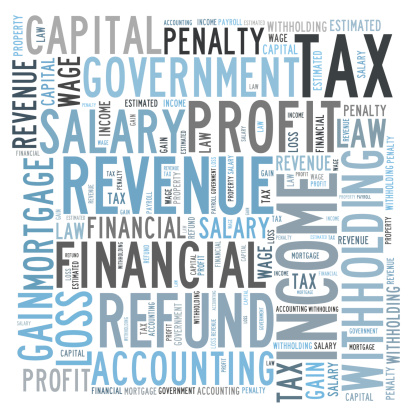
Faculty Member, Accounting and Finance at American Public University
News stories point out all kinds of problems with the IRS and our tax law and how it is enforced. Corporate America is relocating headquarters to offshore addresses while individuals are either not reporting all of their income or not paying the taxes they owe. The tax system we have is very cumbersome, hard to manage, and it is avoided or evaded by many taxpayers.
Individual Taxpayer Issues
Payroll and income taxes are withheld from all employees’ paychecks, and all businesses must send electronic copies of W-2 forms to the IRS to show the federal government employee gross annual income amounts. Everyone shops for groceries and other necessities and pays sales taxes.
Yet nearly $300 billion in tax payments are missing — and the government can’t find it. The lost revenue is from the millions of people who don’t file tax returns and people that the IRS cannot track down.
“There is a substantial block of funds that are really in excess of 10 years old,” said Karen Hastie Williams of the IRS board. “Those trails are stale and it really is uncollectible at this point.”
The board says the IRS is understaffed and agents are overwhelmed by a new problem — the number of sophisticated new tax scams is exploding, enabling more taxpayers to hide money offshore.
Corporate Taxpayer Issues
Corporations are moving their headquarters offshore to avoid corporate taxes. Burger King, for example, recently announced plans to move its corporate headquarters to Canada, a move that could save Burger King approximately $275 million in taxes. Pfizer, Walgreen, Medtronic and Mylan have all moved their headquarters to locations outside the United States.
These corporations won’t change how they sell products in the U.S. but they will avoid paying our 35 percent corporate taxes on their earnings. They will continue to operate here while claiming to be a foreign company. While this scheme might work for large corporations, it leaves small businesses with no realistic way of legally avoiding paying taxes on their earnings.
Fair Tax Act as a Solution
Congressman Robert Woodall (R-Ga.) has proposed a fair tax act to solve these problems. The Fair Tax Act seeks to eradicate income tax avoiders while ensuring that every consumer pays the correct amount of taxes by replacing income taxes with a national sales tax.
Woodall suggests replacing the current income tax system and all payroll taxes with a 23 percent national sales tax. However, there is a provision for families at or those under the poverty level who would be eligible to receive a federal prebate check at the beginning of each month to cover basic necessities.
The Fair Tax Act bill has been introduced to Congress seven times since 2003. The bill was reintroduced on the first day of Congress in 2015 as the Fair Tax Act of 2015. It has at least 57 sponsors including four members of the House Ways and Means Committee where the bill currently resides. According to Woodall, every economist that has looked at the act and thinks that it would grow the economy faster than the current tax system that punishes people for being successful.
About the Author
Dr. William Whitley has a Bachelor’s of Science in Accounting from the University of Alabama Huntsville, an MBA from the University of Houston and a Doctorate in Education from the University of Alabama. Dr. Whitley has been teaching accounting for over 25 years. Dr. Whitley is a CPA and he maintains a small business consulting service and tax practice.

Comments are closed.